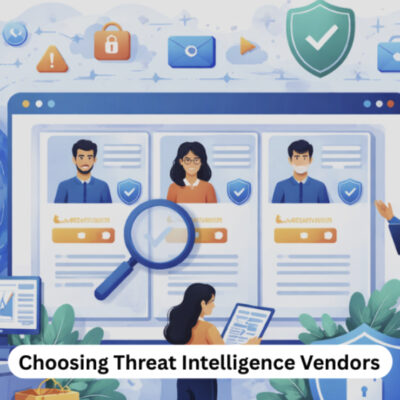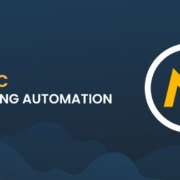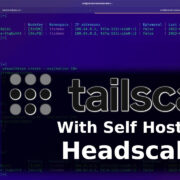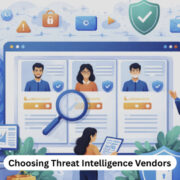Modern tech teams need leaders who can design cloud systems, turn requirements into scalable solutions, and weigh trade-offs between cost, performance, and risk.
As an employee or manager, the correct program will combine technical and business acumen in a manner that will allow you to steer the road maps, budgets and vendor decisions with confidence.
If you’re looking for the best cloud computing courses that balance flexible schedules, hands-on projects, and leadership-ready skills, this list will help you narrow options for 2025.
Top 7 Cloud Computing Courses in 2025
1) Postgraduate Program in Cloud Computing: Leveraging GenAI – Great Learning (Online, 8 Months-Part-time)
This program provides working professionals with a practical, project-first approach to cloud architecture and operations. It’s built for mid-level engineers and managers who must lead migrations and platform strategy.
It is one of the best cloud computing course that integrates live coaching, practical labs and a portfolio-ready final project to guide you into cloud leadership.
Delivery mode: Fully online, cohort-based with live classes, hands-on labs, mentor sessions, and capstone projects.
Duration: 8 months(varies by intake; program page lists detailed schedules and options).
Key features:
- Executive-ready, multi-cloud curriculum: Cloud fundamentals, containers & Kubernetes, infrastructure-as-code, and GenAI model serving for production workloads.
- Portfolio-ready capstone: Real migration/modernization project with constraints on cost, compliance, and uptime to demonstrate end-to-end delivery.
- High-touch, hands-on learning: Live labs, mentor reviews, graded assignments, and optional certification prep (AWS/Azure/GCP).
- Operational & business impact focus: Cost governance, cloud security, SRE/DevOps practices, and stakeholder communication to show measurable outcomes.
2) Cloud Architect Professional Certificate – Google Cloud / Coursera (Online, 3–6 months)
This certificate focuses on applied Google Cloud skills you can use immediately. It’s a good fit for managers and engineers who need platform-specific fluency and exam-ready knowledge.
Expect hands-on labs, real-world scenarios, and clear guidance for designing and securing production workloads.
Delivery mode: Self-paced modules + hands-on labs and assessments.
Duration: ~3–6 months part-time (depends on learner pace).
Key features:
- Platform-specific deep dive into GCP services, networking, IAM, and infrastructure automation.
- Labs and exercises aimed at designing and securing production workloads.
- Useful for managers evaluating vendor trade-offs or preparing teams for Google Cloud certification.
3) AWS Cloud Architect Track – A Cloud Guru / AWS Training (Online, 3–9 months)
This track teaches AWS architecture from core services to serverless and operational best practices. It suits engineering managers and architects who lead cross-team cloud projects.
You’ll get labs, real scenarios, and certification pathways that focus on cost, reliability, and scale.
Delivery mode: Video lessons, interactive labs, and certification prep.
Duration: 3–9 months depending on depth and certification targets.
Key features:
- Comprehensive coverage of AWS compute, storage, networking, and serverless services.
- Emphasis on AWS Well-Architected Framework, cost controls, and operational excellence.
- Paths to prepare for AWS Solutions Architect and DevOps certifications — good for engineering managers coordinating multi-team migrations.
4) Microsoft Azure Solutions Architect / DevOps Path – Microsoft Learn / edX (Online, 3–8 months)
This path gives you practical Azure skills for architecting and operating secure, compliant platforms. It’s ideal for IT teams using Microsoft stacks or hybrid cloud setups.
Expect sandbox labs, infra-as-code practice, and role-based assessments tied to Azure certifications.
Delivery mode: Modular online learning with sandbox labs and role-based assessments.
Duration: 3–8 months part-time, depending on prior experience and chosen cert path.
Key features:
- Azure architecture, identity (Azure AD), security, and infra automation (ARM/Bicep, Terraform).
- DevOps pipeline, monitoring, and governance modules aligned with enterprise compliance.
- Prepares learners for Azure certifications and for managing hybrid Microsoft-centric deployments.
5) Cloud DevOps & Site Reliability Engineering (Nanodegree) – / Bootcamps (Online, 4–6 months)
This program is hands-on and project-driven, centered on CI/CD, reliability, and automation. It’s made for engineering leads who own uptime, incident response, and deployment quality.
You’ll build production-ready pipelines, observability stacks, and incident playbooks you can reuse on the job.
Delivery mode: Project-based curriculum with mentor reviews and graded projects.
Duration: 4–6 months part-time (project cadence varies).
Key features:
- Practical focus on CI/CD, infrastructure-as-code, container orchestration, and SRE best practices.
- Realistic projects: build production pipelines, resilient services, and incident response playbooks.
- Ideal for engineering leaders who need to raise reliability and automate operations at scale.
6) MSc / Master’s in Cloud Computing or Distributed Systems – Leading Universities (online/hybrid, 12–24 months)
A master’s program gives you deep systems and theory plus applied projects. It’s best for managers who want a credentialed systems perspective and strategic architecture skills.
Expect rigorous coursework, research or industry projects, and a strong signal for senior technical roles.
Delivery mode: Cohort-based hybrid or fully online academic program.
Duration: 1–2 years part-time (varies by university and study load).
Key features:
- Rigorous grounding in distributed systems, cloud architecture, security, and performance engineering.
- Research or industry project options for deeper specialization (edge, cloud security, big-data pipelines).
- Strong credential value for senior technical leadership and strategic architecture roles.
7) Executive Short Programs: Cloud Strategy & Governance – Top Business Schools / Professional Education (4–12 weeks)
Short executive programs focus on cloud economics, risk, and vendor strategy. They’re designed for non-technical leaders who must sponsor or evaluate cloud initiatives.
You’ll leave with decision frameworks, ROI approaches, and governance templates to use with stakeholders.
Delivery mode: Short, intensive live or virtual modules with case studies, seminars, and executive coaching.
Duration: 4–12 weeks part-time (short sprints or multi-week formats).
Key features:
- Designed for senior managers and execs: vendor selection, cloud economics, risk, and compliance frameworks.
- Case-driven sessions on migration strategy, hybrid governance, and organizational change management.
- Real-life models to match cloud programs with KPIs, ROI and enterprise risk tolerances, which are suitable to non-technical sponsors and decision makers.
Conclusion
Pick a program that fits your calendar, the platforms you’ll manage, and whether you need hands-on engineering depth or governance-level fluency.
Short certificates sharpen specific tool sets and decision skills quickly, while part-time master’s and postgraduate programs build broader leadership credibility.
Whatever you choose, protect weekly study time, apply projects to your team’s backlog, and document outcomes; that mix will make your cloud work count when evaluating cloud computing courses.









